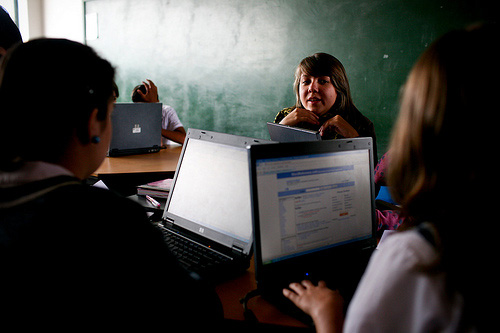Digital and Media Literacy: A Plan of Action, a new policy paper by Renee Hobbs, addresses the Knight Commission’s recommendations that digital and media literacy be strengthened in order to get citizens more engaged in their communities.
The paper focuses on steps to ensure that citizens are equipped with the analytical and communications skills they need to be successful in the 21st century. It also proposes the integration of digital and media literacy into advocacy campaigns, education curricula, and community-based initiatives. From parents concerned with online safety issues, to students searching for information online at home, schools and libraries, to everyday citizens looking for accurate and relevant health care and government resources, all Americans can benefit from learning how to access, analyze, and create digital and media content with thoughtfulness and social responsibility.
To accomplish this, Hobbs specifically calls for:
- supporting community-level digital and media literacy initiatives, including promoting community partnerships and creating a Digital and Media Literacy (DML) Youth Corps to bring digital and media literacy to underserved communities and special populations via public libraries, museums and other community centers;
- developing partnerships for teacher education so teachers can be prepared to educate their students on digital and media literacy;
- developing measures to assess learning progression and video documentation of best practices for digital and media literacy instructional strategies; and
- increasing visibility for digital and media literacy education through public service announcements, entertainment-education initiatives, and an annual educator conference.
With increased education and understanding of digital and media literacy, Hobbs observes, citizens will be able to minimize the potential negative dimensions of increased information flow and instead use media and technology to improve their lives and communities.
Renee Hobbs is a Professor of Communication at Temple University’s School of Communications and Theater, where she founded the Media Education Lab in the Department of Broadcasting, Telecommunications and Mass Media. Over her career, she has contributed dozens of scholarly articles, multimedia curriculum resources and professional development programs to advance the quality of media literacy education in the United States and around the world.
